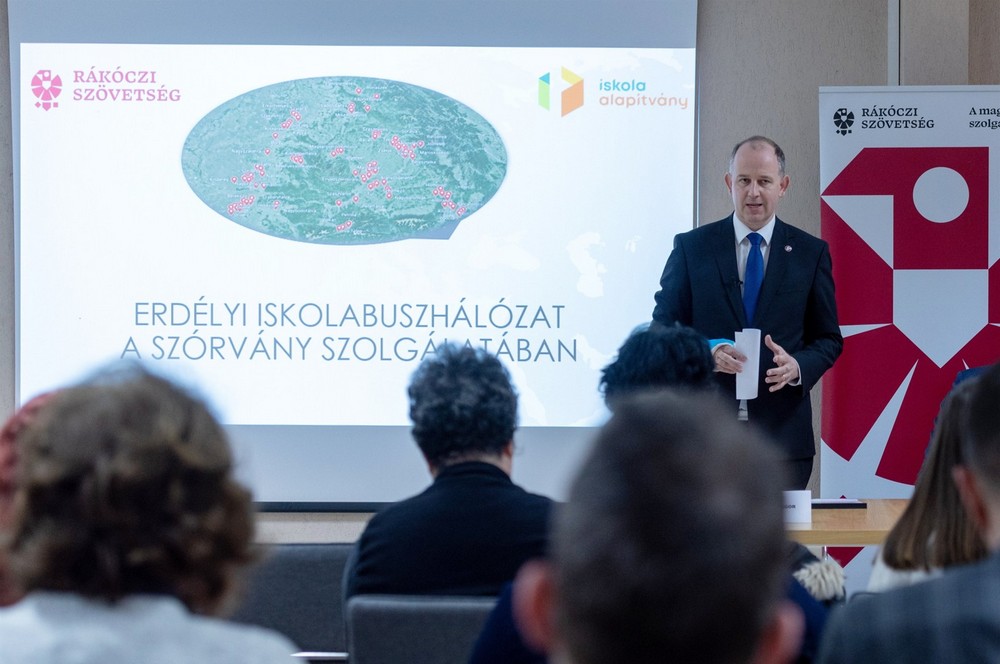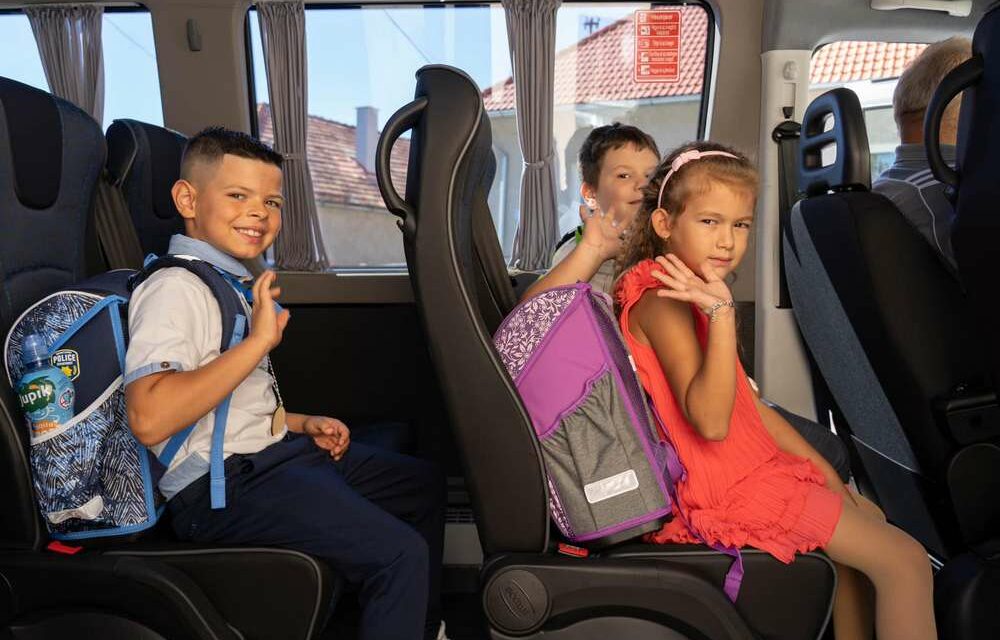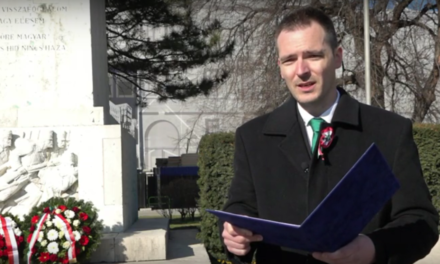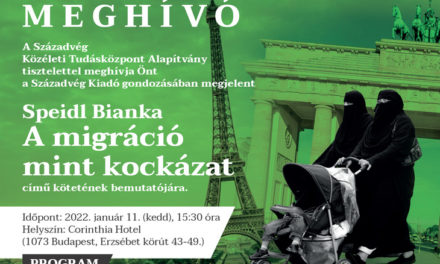Starting next school year, the Rákóczi Association will start its school bus program in 31 scattered settlements in Transylvania, which will implement its plan with the support of the Hungarian government and in cooperation with the School Foundation. Furthermore, due to the difficulties of the war in Transcarpathia, starting in January, those who opt for Hungarian education will receive a sum equivalent to HUF 100,000 gross, and from the next school year, members of the other Hungarian communities across the border who opt for Hungarian schools will also receive a similar amount.
Miklós Panyi, State Secretary for Strategy at the Prime Minister's Office, pointed out at the press conference in Cluj-Napoca that the demographic decline characteristic of the whole of Europe particularly affects Hungarians in the Carpathian Basin,
due to the decreasing number of children, it is difficult for Hungarians across the border to maintain Hungarian-language educational institutions and access to education in their mother-tongue, and the Hungarian government must respond to these challenges.
"One such tool could be the maintenance of a network of school buses, which helps access to Hungarian mother-tongue education"
Miklós Panyi told MTI.
Miklós Panyi emphasized that the Hungarian government is committed to the people who choose Hungarian schools, and reminded Deputy Prime Minister Zsolt Semjén of the announcement made last November at the Hungarian Standing Conference (For Maért) that the government will increase the cross-border education and training fee from the current HUF 22,400 support.
He stated:
In Transcarpathia, due to the difficulties of the war, starting in January, those who opt for Hungarian education will receive a sum equivalent to HUF 100,000 gross, and from the next school year, members of the other Hungarian communities across the border who opt for Hungarian schools will also receive a similar amount.
Csongor Csáky, the president of the Rákóczi Association, said:
within the framework of the program, around half a thousand students from more than a hundred settlements in 11 counties of Transylvania are transported to 34 elementary schools. They are confident that the program will be at least as successful in Transylvania as in the Highlands
- he said - where
as a result of the program, the number of children enrolled in first grade increased by 30 percent.
He emphasized that they do not want to be a "hump on the neck of schools operating between existence and non-existence", therefore they undertake the full operation of 36 school buses capable of transporting 9 people. The vehicles were purchased for HUF 501 million with the support of the Hungarian government.
The president reminded: the organization contributes with its civilian means to the maintenance of Hungarian education abroad, and since 2004 has also been present in the Felvidék with a structured school choice program.
"Behind this program, a large-scale social coalition has been created in Hungary in recent years"
- He told.

Csongor Csáky, president of the Rákóczi Association, at the press conference of the association and the School Foundation at the foundation's headquarters in Cluj on February 22, 2023. A school bus network serving the scattered communities of Transylvania is planned to be launched with the support of the Hungarian government this September. MTI/Gábor Kiss
"All support and programs that further support Hungarian-language education are to be welcomed," said Levente Zoltán Nagy, president of the School Foundation.
Based on data from the Romanian National Statistical Institute (INS), it reported that between 2012 and 2021, the number of students in public education decreased by 10 percent, from 1.05 million to 940 thousand, in 15 counties of Transylvania.
The decrease in numbers in primary and secondary education can be seen at all levels, and it affects the Hungarian communities to a greater extent than the Romanian population, he said, supported by numbers.
Regarding the selection of locations for the school bus program, he said to MTI: based on a preliminary survey, preference was given to those settlements and schools that can attract the most children, since the Romanian school bus program does not work in many settlements, the vehicle is bad, or there is no one to drive it.
The president of the foundation, which also runs a free afternoon education program in 15 Transylvanian counties, also reported that
the results are already beginning to be seen in some settlements: the number of people enrolling in Hungarian schools is increasing.
Next year's enrollment program will start in April with a campaign emphasizing new support tools.
MTI
Cover image: Facebook page of the Rákóczi Association












